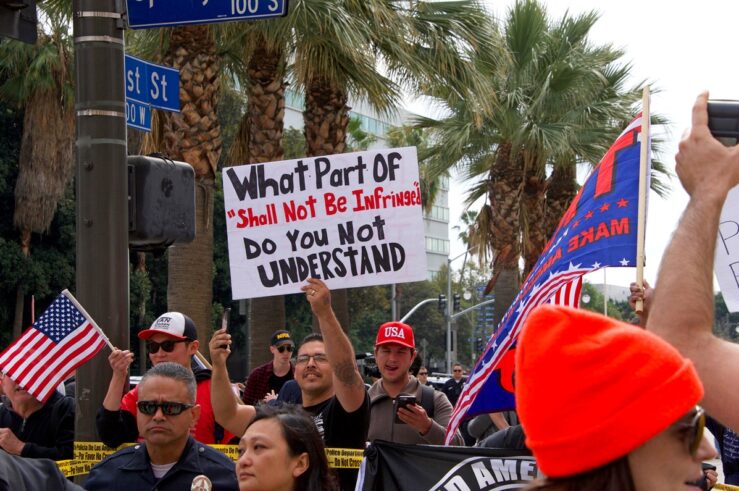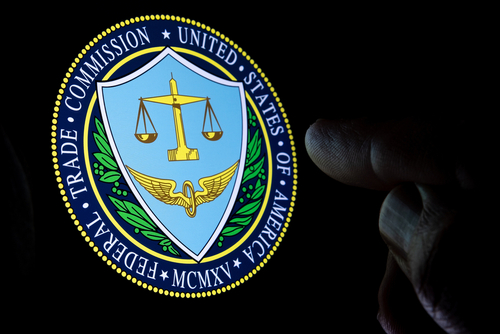Showing archive for: “Insurance”
Antitrust at the Agencies: PBM Madness at the FTC, Part 2
As I noted in my last post, the Federal Trade Commission (FTC) announced Sept. 20 that it had filed a complaint: against the three largest prescription drug benefit managers (PBMs)—Caremark Rx, Express Scripts (ESI), and OptumRx—and their affiliated group purchasing organizations (GPOs) for engaging in anticompetitive and unfair rebating practices that have artificially inflated the ... Antitrust at the Agencies: PBM Madness at the FTC, Part 2
The FTC Takes On Pharmaceutical Benefit Managers
The Federal Trade Commission (FTC) announced Sept. 20 that it was suing the three largest pharmaceutical benefit managers (PBMs)—Caremark Rx, Express Scripts (ESI), and Optum—alleging competition and consumer-protection law violations. This commentary provides information on controversies surrounding the economic effects of PBMs that led up to the suit. A follow-up commentary will assess the lawsuit ... The FTC Takes On Pharmaceutical Benefit Managers
The FTC Case Against PBM Rebates
About a month ago, the Wall Street Journal reported that the Federal Trade Commission (FTC) was preparing an antitrust suit against the nation’s three largest pharmaceutical benefit managers (PBMs), the intermediaries who negotiate drug prices on behalf of insurers and who manage benefits for nearly nine in 10 insured Americans. This development followed a two-year ... The FTC Case Against PBM Rebates
Vullo and the Dangers of Government Coercion Over Speech
The U.S. Supreme Court delivered a major victory for free speech and struck a blow against government censorship-by-proxy yesterday in NRA v. Vullo: “Government officials cannot attempt to coerce private parties in order to punish or suppress views that the government disfavors.” This is a major decision, and will have implications for free speech online, ... Vullo and the Dangers of Government Coercion Over Speech
Why I’m a Skeptic of a Noncompete Ban
Under a recently proposed rule, the Federal Trade Commission (FTC) would ban the use of noncompete terms in employment agreements nationwide. Noncompetes are contracts that workers sign saying they agree to not work for the employer’s competitors for a certain period. The FTC’s rule would be a major policy change, regulating future contracts and retroactively ... Why I’m a Skeptic of a Noncompete Ban
After the FTX Crash, What’s Next for Crypto?
For many observers, the collapse of the crypto exchange FTX understandably raises questions about the future of the crypto economy, or even of public blockchains as a technology. The topic is high on the agenda of the U.S. Congress this week, with the House Financial Services Committee set for a Dec. 13 hearing with FTX ... After the FTX Crash, What’s Next for Crypto?
Taking Cost-Benefit Analysis Seriously in Consumer-Data Regulation
In its Advance Notice for Proposed Rulemaking (ANPR) on Commercial Surveillance and Data Security, the Federal Trade Commission (FTC) has requested public comment on an unprecedented initiative to promulgate and implement wide-ranging rules concerning the gathering and use of consumer data in digital markets. In this contribution, I will assume, for the sake of argument, ... Taking Cost-Benefit Analysis Seriously in Consumer-Data Regulation
Antitrust’s Uncertain Future Roundup: The Minority Report
[TOTM: The following is part of a digital symposium by TOTM guests and authors on Antitrust’s Uncertain Future: Visions of Competition in the New Regulatory Landscape. Information on the authors and the entire series of posts is available here.] Philip K Dick’s novella “The Minority Report” describes a futuristic world without crime. This state of the ... Antitrust’s Uncertain Future Roundup: The Minority Report
New Frontiers of Fairness: Auto Da Fé by the Grand Inquisitor of Economics
July 26, 10 A.F. (after fairness) Dear Fellow Inquisitors, It has been more than a decade now since the Federal Neutrality Commission, born of the ashes of the old world, ushered in the Age of Fairness. As you all know, the FNC was created during the Online Era, when the emergence of the largest companies ... New Frontiers of Fairness: Auto Da Fé by the Grand Inquisitor of Economics
How the FTC Could, but Won’t, Use Its Rulemaking Authority to Allow Aftermarket Parts
We used to have a robust aftermarket for non-original equipment manufacturer (OEM) automobile repair parts and “independent” repair services, but car companies have increasingly resorted to design-patent protection to prevent competition in the supply of cosmetic repair parts such as bumpers, hoods, panels, and mirrors. The predictable and intended consequence has been to raise prices ... How the FTC Could, but Won’t, Use Its Rulemaking Authority to Allow Aftermarket Parts
Fleites v. MindGeek Contemplates Significant Expansion of Collateral Liability
In Fleites v. MindGeek—currently before the U.S. District Court for the District of Central California, Southern Division—plaintiffs seek to hold MindGeek subsidiary PornHub liable for alleged instances of human trafficking under the Racketeer Influenced and Corrupt Organizations (RICO) and the Trafficking Victims Protection Reauthorization Act (TVPRA). Writing for the International Center for Law & Economics ... Fleites v. MindGeek Contemplates Significant Expansion of Collateral Liability
Intermediaries: The Hero We Need?
In policy discussions about the digital economy, a background assumption that frequently underlies the discourse is that intermediaries and centralization always and only serve as a cost to consumers, and to society more generally. Thus, one commonly sees arguments that consumers would be better off if they could freely combine products from different trading partners. ... Intermediaries: The Hero We Need?
















